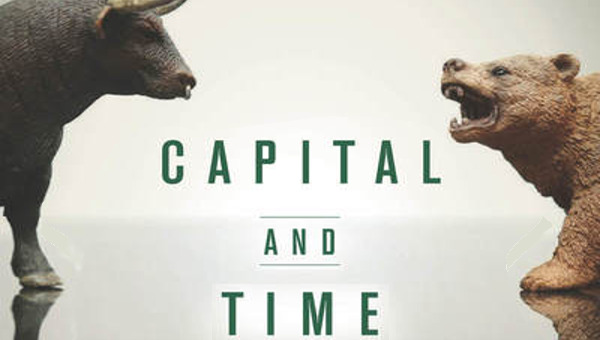Financial Capital: Crises Are Part of the Game
Everything went well during the summer of 2007. The economy was in an upswing and stock-market prices rose even faster. Then the end of the housing boom in the United States triggered an international financial crisis. Up to now it has been contained by heavy central-bank intervention; but the euphoria is gone. The world of finance is suffering from hangover and insecurity. As always in such cases, speculation is shifting from stock markets to prognosis. On one hand, bankers, brokers, and rating agents, who knew economic prospects so well yesterday, are now desperate for any prognosis that economists, journalists, or even politicians offer them, though the latter don’t know what’s going to happen either. All ask whether declining stock markets will lead to a recession. On the other hand, critics of financial capitalism see the current crisis as confirmation of their warnings that unregulated financial markets lead to increasing volatility and speculative bubbles, which, in turn, would cause insecurity, a lower propensity to invest in the production of goods and services, and thus full-blown crisis.
However, the relation between stock market euphoria and economic boom and panic and crisis is less clear than fans of financial capitalism currently fear and its critics have always warned. Just as unclear are the relations among volatility, insecurity, and crises. A look into the history of financial capitalism in the United States shows that not all financial crises occurred in tandem with recessions. The 1987 panic, for example, didn’t affect the economic upswing at all, and the 1990/91 recessions didn’t spoil speculative investments. Moreover, a closer look at the data reveals that in some cases the boom had already turned to bust before the stock market party was over.
This was the case in 1929 and 2001; it is also true for the current crisis. A growth slowdown was well underway before the housing and financial crises hit. Finally, losses that occur between the floors and ceilings of speculative cycles have gotten smaller since the 1929 crash. Absolute increases in stock market indices and turnovers are misleading in this respect; relative losses are much smaller today than they were in the past. Financial assets represented in the Dow Jones Index lost almost 90% of their value after the 1929 crash. The loss in relative value was down to about 50% in the 1970s, when talk about financial capitalism was pretty much absent from economic debates. The end of the dot.com speculation in 2001 led to a loss in relative value of only around 35%.
Table: Financial Crises since 1929
| 1929-32 | 1973-75 | 1987-87 | 2001-02 | 2007 | |||||
|---|---|---|---|---|---|---|---|---|---|
| Dow Jones | 381.17 | 41.22 | 1,051.70 | 577.60 | 2,662.95 | 1,833.55 | 11,337.90 | 7,286.27 | 14,000.41 |
| Relative value in percent | 100 | 10.81 | 100 | 54.92 | 100 | 68.85 | 100 | 64.26 | 100 |
| Loss of value in percent | 89.19 | 45.08 | 31.15 | 35.74 | |||||
| Recession | X | X | — | X | ? | ||||
Does this imply that the fears in the world of finance and the warnings of critics are equally mistaken? Does it reinforce the notion of finance freaks claiming that unregulated financial markets have led to stabilization of economic development and that still recurring crises are caused by external shocks or political interventions?
Those cases where the downturn had already started before a financial crisis hit suggest that what happens in financial markets is not the cause of business cycles. In fact, crises are a fundamental part of capitalist development. Their root cause is over-production, leading to declining sales, or falling profit rates, instigated by capital costs exceeding productivity growth. Financial turbulences and breakdowns are symptoms of such crises and potential accelerators within the crises cycle.
Since the Great Depression, governments and central banks in the capitalist centers have learned to counter liquidity squeezes that arise from company bankruptcies and insolvent private households through the injection of money into financial circuits and the lowering of interest rates. As long as the ruling classes are not striving for the aggravation of an economic crisis, for example to discipline militant workers’ movements, they are interested in crisis management because unsalable inventories and unpaid bills diminish their realized profits.
Things are different in the South, where ambitions to develop economically are often hampered by crisis-aggravating policies used to consolidate neocolonial rule. Liquidity injections (policies that increase the amount of money available for lending by banks and other financial institutions) that central banks in the U.S., Europe, and Japan prescribe for their economies have just recently arrived in the South, accompanied by “structural adjustment” policy decrees designed to extend Northern imperial control over Southern profits.
Nervous attention accompanying the current financial crisis is not only different from the slick crisis management that capitalist centers’ ruling classes typically grant to peripheral countries; it also distracts from the real problems of financial capitalism. To make it very clear, crises are as much part of the capitalist game as amens are part of the church service. This was the case before there was modern financial capitalism, and it will continue to be true even if tighter regulations of financial markets come in the future. However, financial capitalism established an effective mechanism of redistribution that would also work under regulations that are restricted to financial markets.
Stock markets are usually presented as locations of intense activity, no matter whether the utilization of profit chances during the boom or the timely sale of papers during a crisis is at stake. This media spectacle shouldn’t obscure the fact that the rise of finance capitalism went hand in hand with the promise of a new and stable model of society. Until the stock market and economic crises in 2001, this new model was marketed as a New Economy.
Unemployment, precarious jobs, the intensification and degradation of work, and the lack of social security promised a shareholder society in which income and status are not dependent on a job but on financial investment. Such a society appeared quite attractive. Who wouldn’t want to escape the toil of creating wealth if stock markets could miraculously turn water into wine? Unlike being a worker in a firm where you are pushed around by bosses and managers all the time, as a stock market player you are equal among equals. Luckily, individual dollars, euros, or yen don’t reveal your social status, and you don’t have to tell anybody that your stakes are ridiculously small compared to those of the big players in the game. The promised shareholder land drove many savings out of savings books and into the inscrutable labyrinth of modern finance.
But, ironically, these stock market operations bear claims to investment incomes, creation of which is responsible for the misery in the working world. Lay-offs, speed-ups, wage cuts, and other means to increase the production of surplus value come always in the name of shareholders’ interests. So when workers think that they can become shareholders, they fail to realize that it is their own misery that has created the stock prices that allow for the shareholder propaganda. The desire of working people to migrate to the new world of financial markets is built upon their own exploitation. That this could work is powerful testimony to the alienation of working people, an alienation so great that they are able to believe that they can escape their misery by being exploited.
However, not all who can bring the minimum stakes to financial markets’ gaming table have equal reason to look down upon proletarians who have underpaid jobs but no savings they can gamble away. That’s because the income claims generated by financial markets exceed the surplus value squeezed out of workers in the production process. Partially, increasing stock market prices are covered by redistribution from wages to investment incomes, but a part of them can’t be validated (made good) by profits, interests, or rent payments to shareholders. Falling stock market prices thus devalue some of those over-accumulated income claims and imply the loss of initial investment to some of the players. This is true for companies that become takeover targets after miss-speculations, and it is even truer for private households who lose some or all of their savings in the course of declining stock market prices. Some of those households will descend into the ranks of the proletariat who were despised during the stock market rally and its appending income illusions.
Financial capitalism turned the stock market-based hope for easy wealth from an individual quirk into an organizational principle of society. Even cautious characters who keep their money in savings accounts realize that the banks they trust are engaged in risky speculations. Therefore, seemingly risk-free saving deposits are under the threat of insolvency and devaluation in case of a financial crisis. Depreciation of income claims that financial crises bring about may seem insane and unnecessary, but they serve the interests of big players. Not only does a crisis help bigger players take over big ones, a process commonly known as centralization of capital; it also allows the joint group of big players, the propertied class, to appropriate savings from middle- and some working-class households.
In the 1970s, many middle-class households and higher-paid workers were afraid that inflation in the markets for consumer goods would eat away the purchasing power of their savings. Such anxieties were successfully used by the ruling class to mobilize scared small savers against trade unions who were presented as busy spinners of an inflationary wage-price spiral. Out of the then emergent war against unions and workers, financial capitalism was born. In the meantime, asset inflation that obviously became part of that new form of capitalism created its own fuzzy anxieties. However, so far they have not served to inspire a search for alternatives to (financial) capitalism. •
A version of this essay also appeared at MRZine.monthlyreview.org.





